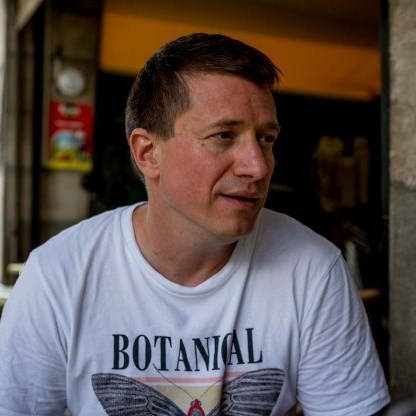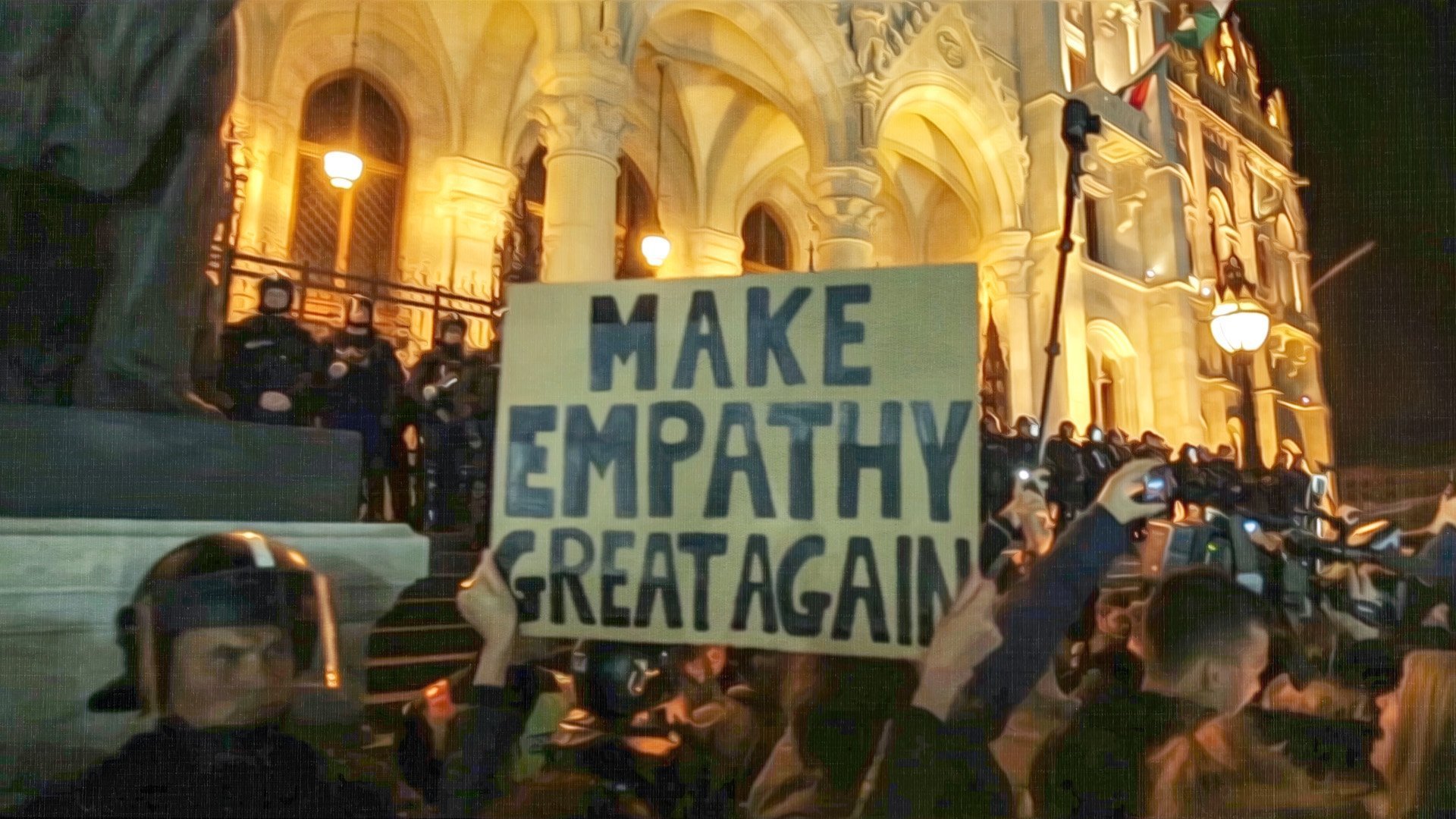The Hungarian government has adopted new rules designed to intimidate Hungarian NGOs and people who donate money to them. With the space for civil society in Hungary rapidly shrinking, the support and solidarity of the international community is needed more than ever.
Emigration is a constant topic of conversation among my friends in Hungary these days. It comes up at street corners, at the newly opened terraces of cafés, on the trams, or at the beach of the Balaton lake. Friends who have already left the country are asking me, with concerned looks on their faces: “Are you not considering leaving?”
Better wages in the West are not at the top of the list of reasons why my friends suddenly converse more about leaving the country. It is politics. The increasingly authoritarian regime of Viktor Orbán has crossed a line in adopting a Russian-style gay propaganda law last month. In Hungary, where totalitarian state terror left painful wounds in the collective psyche of many families, depriving a group of people of their dignity and rights stirs up uneasy feelings of uncertainty and fear. And I do not speak only about Jews or gays.
Of course, you can say I live in a bubble of liberal-minded Budapest-based intelligentsia. Demographically speaking, those who leave the country might constitute a small minority of the Hungarian population. But the leaving of this small minority of well-educated, well-connected, freedom-loving people is very bad news for the whole country. A loss of talent, connections, and economic-social capacities.
What is more, it is a loss of hope for change. As Martin Luther King put it, is it not always a dedicated creative minority that has made the world a better place?
Orbán knows too well that those who really endanger his corrupted, authoritarian system are independent civil society activists and organisations. He fears us more than opposition politicians, whom he can manipulate, bribe, and turn against each other. This is why he framed NGOs as “foreign agents” and public enemies.
Last year, the European Court of Justice struck down a 2017 law that required NGOs receiving more than 22,000 EUR a year to register on a government page – to create a “black sheep” list and scapegoat us. Our organisation, the Rights Reporter Foundation, together with a few like-minded NGOs, resisted this law. Civil society won – but we knew too well that this victory was only temporary.
Orbán came up with new restrictions against civil society organisations. He introduced a law that requires NGOs with an annual budget of at least 20 million HUF to be audited every two years by the State Audit Office. An institution that is under direct government control and whose processes are obviously biased towards the government parties and pro-government companies.
Most civil society organisations do everything they can to operate in a transparent and lawful way, but people are people – and people make mistakes. There is a good chance that the auditing process will capitalise on every small mistake and the government propaganda will turn them into “shocking mismanagement” and “astounding corruption”.
And it is not enough to intimidate NGOs – they now intimidate our donors too. According to the latest decree adopted by the government last week, NGOs should report the names of all their donors to the government. The goal is to scare away citizens from donating to civil society. (The government now announced that this will apply only to donations larger than 500.000 HUF.)
But even if there will be no consequences for people who donated, this decree will have an obvious chilling effect for future donations. Especially for NGOs that increasingly depend on private donations from the public.
This is of course an unbelievable hypocrisy. Consider that the Hungarian government has just adopted a law that distributed billions of HUF among newly established “private” foundations (read my analysis here!), run by pro-government propagandists. You can bet that these Conservative GONGOs, with annual budgets many times higher than any independent NGO, will not be subjected to the same auditing scrutiny.
One of my favourites is the GONGO called the Centre for Fundamental Rights (CFR). Despite its impressive name, it is a chained, barking dog of the ruling Fidesz party. Unlike real human rights advocates, who are never invited to speak on national TV or radio, they regularly appear in the pro-government media, presented as “experts”. They have an aggressive anti-migrant, anti-gay agenda, and they always amplify the actual message of the Fidesz party.
It is a very profitable non-profit profession to be a pro-government bully. The anti-corruption NGO Átlátszó has just revealed recently that the CFR bought a 1.4 billion HUF (5 million USD) new luxury office at a nice spot in the green belt of the capital, equipped with a sauna.
Obscure phantom institutions and shady foundations grow like mushrooms in Hungary these days – thousands of billions of Forints were channelled into them by the government this year alone. All of them pursue the agenda of the government.
Meanwhile, Lőrinc Mészáros, who is a former gas pipe fitter from the same village as the prime minister (read our earlier article here!), earned more than 185 billion HUF in a single year from public procurement. His ill-gained fortune makes him the richest man in Hungary – but everyone knows that he is just a puppet of the Orbán family.
People in the West have not realised this, but Orbán, despite the “simple guy” image he spreads about himself, is not only the most powerful man in Hungary – but he is the richest too (because he owns the richest man).
The Hungarian authorities, controlled by Orbán’s puppets, do not only turn a blind eye to his state-organised kleptocracy, but as a sign of ultimate hypocrisy, they accuse small, independent NGOs like ours of corruption and mismanagement. They claim it is civil society, demanding more transparency and accountability of state funding, that needs to be disciplined and punished because of the lack of transparency and accountability.
It is really hard to find the words to describe this cynical, evil mendacity.
“The most overwhelming fact of politics is what people do not know rather than what they do know,” said Arthur Finkelstein, the mastermind behind the victorious election campaigns of several authoritarian style leaders, including Viktor Orbán, the prime minister of Hungary. “In politics, it’s what people perceive to be true that matters, not what is true,” he added.
Orbán has mastered the art of post-truth politics. He exploits the gaps in people’s knowledge and fills these gaps with a toxic mixture of distorted half-truths and blatant lies.
Let’s prepare for the usual gaslighting: the government will frame this new debate as the fight between the “secretive”, “illegitimate” NGOs and the government, the champion of law-and-order and transparency. They will use this rhetoric in Brussels and at home as well.
The next strike against Hungarian civil society comes at the time when big international institutional donors are increasingly retreating from our region. The health and welfare of vulnerable groups is not a priority for the EU Commission, increasingly pursuing a law-and-order agenda when it comes to migrants or drug users. The government successfully chased away donors like the Norway NGO Fund. The Open Society Foundations, founded by George Soros, has just announced that it has revised its funding structure, likely resulting in the loss of the only stable core funding many NGOs, including ours, had in the past.
This is very bad timing. With scarce and ever-decreasing financial and human resources available in Hungary, civil society needs the support and solidarity of the international community more than ever.

Péter Sárosi
Executive Director of the Rights Reporter Foundation.
He is a historian, a human rights activist and drug policy expert, the founder and editor of the Drugreporter website since 2004, a documentary film maker and blogger. He has been working for the Hungarian Civil Liberties Union (HCLU) for more than 10 years. Now he leads the Rights Reporter Foundation.

